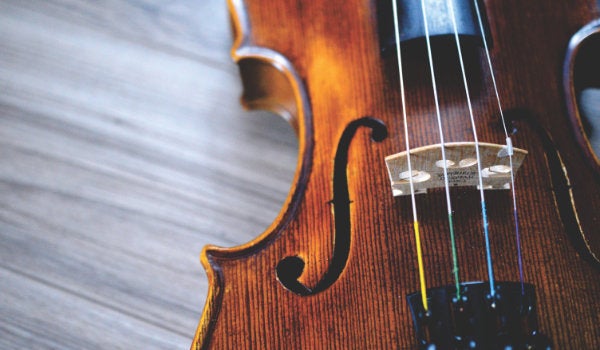Growing up, Zachary Friedland recalls music being a constant in his life. He started with piano at the age of five, taking lessons for about eight years, then began learning drums at age eight. In high school, his skills expanded. As his school band’s drum major, he had many responsibilities — including conducting. “I remember the experience of conducting the concert band for the first time,” he says, “and it was the feeling that I just could not see myself standing up and doing anything else every day for the rest of my life.” After his high school graduation, Friedland chose to attend URI due to his participation in the Southern New England Honors Band, a program run for musically-inclined high school students through URI’s Department of Music. “The faculty were very welcoming,” he says, recalling his first experiences at URI, “and I knew they would take a personal interest in my education.”
After his acceptance to URI, his career goals seemed closer than ever, but one thing made his experience a little different from his cohorts’. “What made it extra special for me,” he says, “is because I was born with a tricuspid stenosis, which means I have a three chambered heart instead of a four chambered heart.” Still undeterred, Friedland received multiple corrective surgeries that allowed for his eventual participation in the URI’s marching band. But while the marching band helped him perfect his craft, he notes that the great interest the faculty took in his learning and the opportunities they gave him motivated him even further, giving him a safe space to experiment with his song composition. “The teachers here [at URI] really understand the value of practical experience, to learn and to improve,” he says. “Because really getting to work with people and seeing what works and what doesn’t in the music you’ve written is what you’ll learn from the most. And you’ll know that going on to the next piece.” He also points to the interdisciplinary curriculum as giving him an important foundation: “[The music program] gives you the opportunity to play in multiple different ensembles, to take lessons learning different instruments, and to write your own music. I feel that it’s overall helped me to be a more well-rounded musician.”
After graduating in 2013 with a B.M. in Music Composition, Friedland went on to pursue his Masters degree at the Longy School of Music in Cambridge, Massachusetts. From there, Friedland earned his doctorate at Ohio State University, graduating in December 2018. He now hopes to teach music at the collegiate level at a smaller liberal arts institution, drawing on his experiences at URI as inspiration. When asked to give advice to incoming students, Friedland is quick to point out how important it is for all musicians to collaborate with one another: “It’s so important for all musicians to know that you should never work in a vacuum,” he says. “There aren’t too many times that you will be surrounded by other musicians who are willing to collaborate, so it’s important to take every opportunity you can to work with and foster relationships that will go beyond college, professionally and personally.” Friedland has similar advice for all liberal arts students, adding, “The same applies to Arts and Sciences because the humanities are all about interactions as well. To really study the humanities means to bounce ideas off of other people and to take others’ ideas as inspiration for your own.”
~Written by Chase Hoffman, Writing & Rhetoric and Anthropology Double Major, URI Class of 2021


